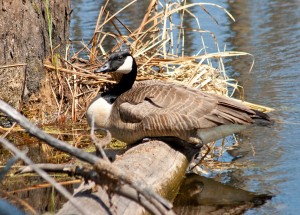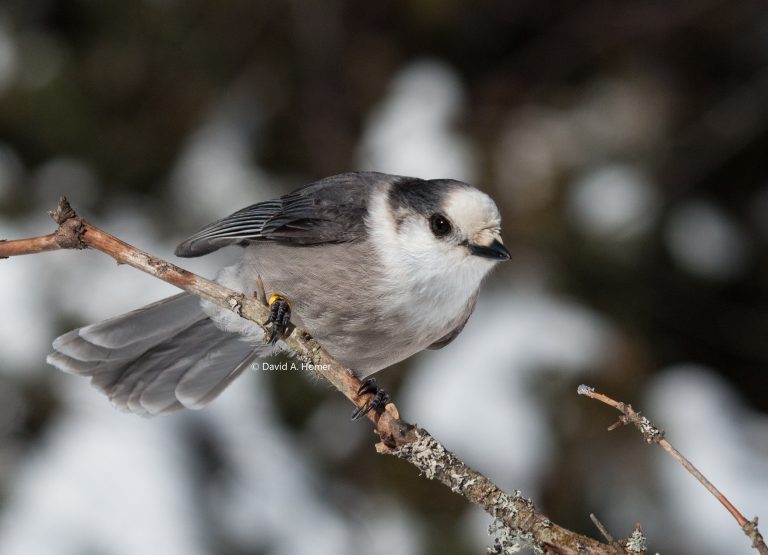Of all the bird species in North America, sixteen species have American in their name. There are only two species with Canada in their name.
The Canada goose is the first species to come to mind and it has not got the best reputation. It is unfortunate because it is a beautiful bird, but even those of us who love them have an incredible dislike for them this time of year when they bring their offspring to our yards and parks to find food. Finding food is not the problem, we can appreciate their need for sustenance. It’s the remnants of the food that is the problem—goose poop, and lots of it!

Photo by David A. Homer
There is another bird with Canada in its name, and I bet most people don’t know what it is. The Canada warbler is not an urban bird, therefore not widely known. They are denizens of moist woodlands with thickets and dense understory. These striking, little yellow and slate -gray warblers with a black necklace are quite plentiful in our area, especially to the north of Lake Simcoe. We don’t entertain them for long however, as they are one of the last birds to make an appearance in the spring, and then they depart on their migration to South America in August. The best way to find Canada warblers is to listen for their distinctive and rather loud call coming from low shrubs and bushes!
As a young boy learning to identify birds, I learned there was another bird which had Canada in its name. The Canada Jay. During the mid 1900’s the American Ornithological Union (AOU), the organization charged with naming North American birds, changed it name to Gray Jay. In late 2016 Canadian Geographic magazine proposed the Gray Jay to be Canada’s national bird. That has yet to be ratified by our government. If it is, wouldn’t it be wonderful if our government would lobby the AOU to change its name back to Canada Jay. There is precedent for reverting to a former name. For a few years, the Baltimore Oriole’s name was changed to Northern Oriole, but recently it has been changed back to Baltimore Oriole.
Now, this could make for a great coffee break discussion on Parliament Hill. How about getting the ball rolling with your colleagues on the Hill Mr. Stanton?
David A. Homer is a volunteer and on the Board of Directors at The Couchiching Conservancy, a non-profit land trust dedicated to protect nature for future generations (including Northern Flickers).

